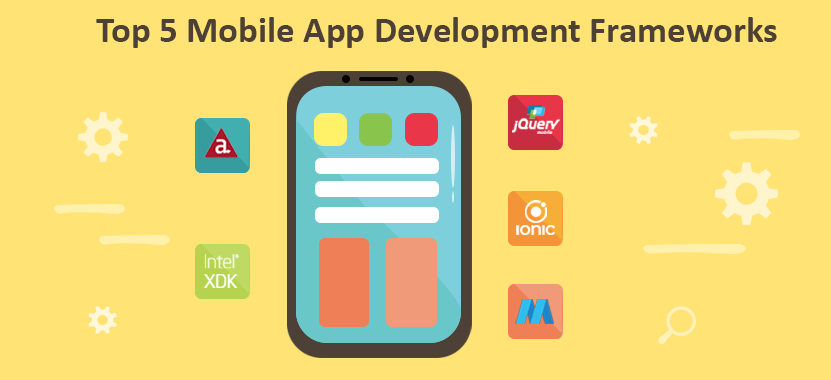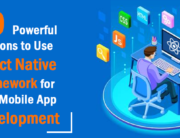Nowadays, apart from desktop websites, businesses are also using mobile apps for interacting with their audience. The apps enable them to reach their customers faster and better engage them. In view of billions of mobile phone users worldwide, using apps for brand promotion, product information and sales makes perfect sense for businesses.
More and more businesses opting for apps has rendered mobile app development extremely competitive. With the increasing standard of apps, there is a surge in the demand and usability of mobile app development frameworks. Choosing the right framework along with the appropriate mobile platform and development strategy is crucial for mobile app development project success.
Mobile App Frameworks
Mobile app frameworks are actually software libraries. They provide essential structure and support for building apps for a particular environment. The frameworks provide inbuilt tools and technology solutions for working on the code, which reduces development effort and increases productivity
Using frameworks grants developers advantages like reusing code and design, data security, customization and template formation.
There are three types of mobile app frameworks:-
- Native frameworks for platform-specific development
- Mobile web app frameworks
- Hybrid apps with combined features of native and web app frameworks
Here are some leading frameworks that will remain tremendously popular among app developers in 2020 and upcoming years.
1. React Native
Facebook designed React Native for developing native apps for platforms like iOS and Android. React Native is based on React, a JavaScript library created by Facebook. It uses actual iOS or Android components while building user interfaces and utilizes Javascript-XML language for building them.
React Native provides advantages like reusability, efficiency, optimal performance, modular architecture and support for third-party plugins.
2. Adobe PhoneGap

Adobe PhoneGap, a cross-platform app development framework lets developers see changes immediately. They can build apps in Javascript, HTML5 and CSS.
Adobe PhoneGap allows developers to build high-quality performance apps and develop apps without any hardware limitations. It supports nearly all the major operating systems like Android, iOS, Blackberry, Windows, Mac OS, Firefox OS and Ubuntu. Plugins can extend its functionality. Adobe PhoneGap automatically compiles the uploaded codes.
Its benefits are uniformity across platform and support for smartphone mainstays.
3. Native Scripts

Created and supported by Telerik, Native Scripts is used for building hybrid apps.
The apps using this framework utilize the same APIs, alike Android Studio or Xcode. Native Scripts enables building of native iOS apps and native Android apps through Vue.js, JavaScript and TypeScript Angular. The tutorials are available for helping developers.
Native Scripts provides advantages like faster access to native libraries, cross-platform ability and open source development ecosystem.
4. Xamarin

By letting developers code fast and share the code, it saves their significant time.
Supported by Microsoft, Xamarin enables building of apps for iOS, Windows and Android through C# codebase. The codes can be shared across multiple platforms, including Mac OS and Windows.
Its other benefits are more updated and stable Xamarin SDK, less complexity, complete development ecosystem and overcoming the limitations of hybrid apps.
5. Corona SDK
Corona SDK is 10 times speedier than any other mobile app development framework. Lua, a light-weight programming language that emphasizes on ease of use, flexibility and speed supports Corona backend. Coding quickly with Corona SDK does not affect app quality.
Free, cross-platform, single code base, importance on design, plugins, dominant APIs and rights to a source code are its benefits.
For choosing a particular app development framework, a mobile app development company needs to carefully evaluate the requirements of an app development project and associated factors. Though many app development frameworks are available in the market, those mentioned above will be developers’ preferred choice in 2020 and beyond due to the various benefits provided by them.







Leave A Comment